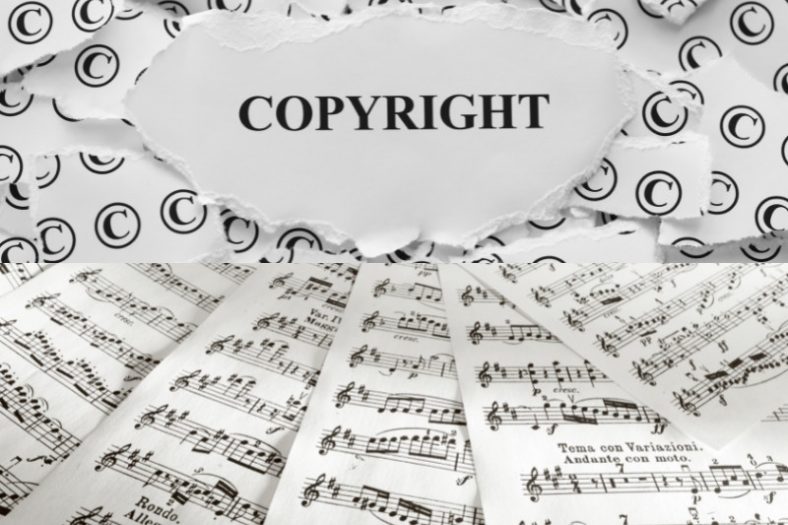Is Classical Music Copyrighted?

Because most classical music was created decades ago, most people assume that it does not fall under copyright law. However, this is not true. Classical music has copyright laws, and also, one has to understand how copyright works for all this to make sense.
Many countries around the world have a rule that if the composer of the music passed away more than 70 years ago, then that music is labeled as a public domain and can be used and re-used to create new work. However, if, within those 70 years, an artist got their hands on the license and used it to create a newer version of that work, then a new copyright law exists on that particular version.
Various countries have their own rules about this subject, but as I mentioned, most countries have the same view when it comes to copyright music, namely if the creator has been deceased for over 70 years, the work becomes public domain and can be used by anyone.
Disclaimer: We are not lawyers, so this is not legal advice with regard to music copyright, but we can give you some general information based on our understanding of copyright in relation to classical music.
Contents
Public Domain
Public Domain means that there is no copyright law on a certain piece, nor any trademark or patent laws. As the name suggests, the public owns this material – therefore, it is free to use.
There are a few ways a certain piece falls under the public domain, firstly, the copyright law has expired. As mentioned, most commonly, after 70 years of the passing of the creator, his/her works fall under Public Domain and can be used.
Secondly, the creator of the piece has neglected to renew its copyright law. Copyright renewal is done every 28 years to extend the term of copyright laws on a particular piece. Thus, if the creator is still alive and wishes to extend the copyright term, he/she could do so. If not, then the material is public domain.
Also, there are instances where the creator deliberately puts their material in the public domain, this is known as ‘dedication’. They offer their piece to the public to be used. Lastly, copyright has not been placed on a particular piece for whatever reason, then it also is free to use.
Copyright Laws
There are two separate copyright laws. One is for the arrangement and the other one is for the recording of the song.
Before the invention of recording equipment, copyright protection for musical works was all there was between a common listener and a producer. However, with the coming of sound recording technology, the second kind of music copyright was invented, often known as “sound recording rights,” it was devised to protect recorded performances.
While a piece may be considered public domain, you have to ask yourself “Why would companies even bother hiring an entire orchestra just to do their own version of the song?”. Because the piece can’t be played in its original form because either the arrangement or recording is already owned by someone. They have to make a new recording, therefore, having the license to use their own music.
This is how Classical Music falls under copyright law. Either the arrangement or the recording is owned by someone. ‘Mechanical Rights’ can be purchased, meaning that companies or individuals can purchase the rights over a piece of music and implement their own copyright laws over it.
Can You Use Classical Music?
Copyright laws regarding music are almost the same in most countries, which states that 70 years after the passing of the creator of a piece of music, it’s public domain. Knowing that, when it comes to classical music from the likes of Beethoven or Mozart, which have been deceased for more than 70 years, their music is free to use.
Still, one thing you need to keep in mind is that there may still be copyright laws affecting their music. As I stated previously, musical composition and a sound recording are two very different things. Also, someone might have bought the rights to their music and has new copyright set upon it.
In order to use a composition by Beethoven or Mozart, you have to find a recording of that particular composition that is free to use. Don’t forget the fact that you still have to check the copyright laws within your country because copyright is territorial.
Other Things That May Still Be In Effect
Since there have been a lot of artists in the history of music, one would assume that because most of them died a long time ago, the music would be free to use. However, this is not the case as many artists have their work copyrighted for donation purposes.
For example, GM Barrie’s “Peter Pan” is still in copyright because the piece is still accredited with royalties that run to this day and are all donated to the ‘Hospital for Sick Children’ in London. This is in effect as long as the hospital exists. You can find many artists that have done the same thing throughout history, so keep in mind to really cross-check every piece of information before trying to use certain pieces of music.
Conclusion
Although the creators of classical music died a long time ago, there is still a copyright law in place on a particular piece of music from that creator. Although it may be considered public domain at this point, you still do not own the right to use that music if the recording of that piece is still under copyright law.
In order to use a piece of classical music, you will need to find a recording that is free to use and doesn’t fall into a different arrangement made by a company that owns the rights to that particular piece. You have to keep in mind that there are strict rules against this that vary from country to country, so be sure to check out what the law states about copyright in your country and to find the right recording of the song that is free to use.
You should also check the rights to the song are still used for donation purposes that are still in effect today. A lot of things to keep in mind but the most surefire thing is to simply get the proper license for using a certain piece of music because that is the carefree decision to make.





